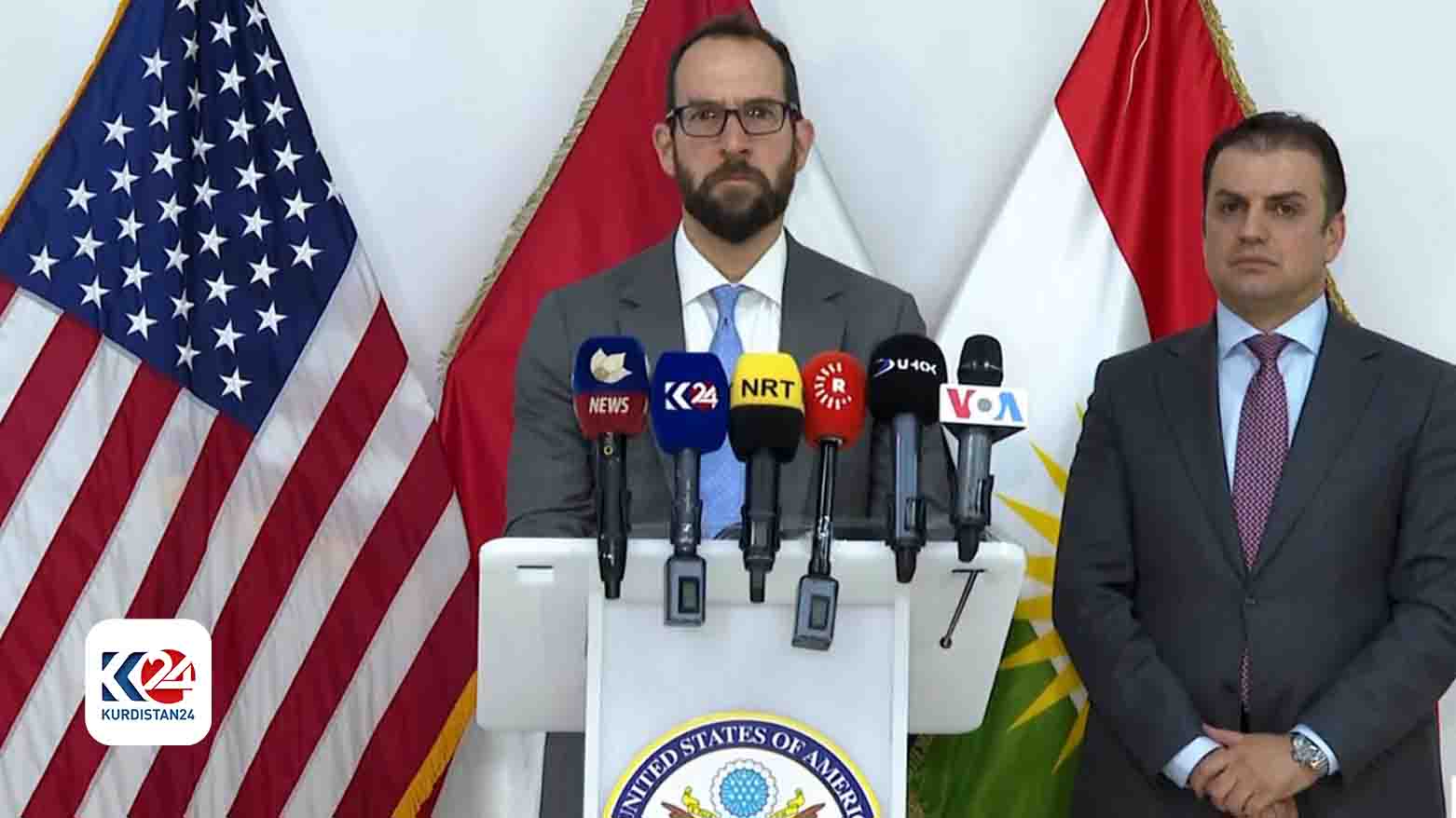U.S. Consul General praises KRG’s open door policy for IDPs and refugees
“We strongly welcome the policy of the Kurdistan Regional Government, which has consistently said that no displaced Iraqis will be forced to go home.”

ERBIL (Kurdistan24) – U.S. Consul General in Erbil, Mark Stroh, speaking on Sunday in Nineveh's Sheikhan district, expressed high praise for the Kurdistan Region, as he described America's appreciation for the role that the Kurdistan Region has played in hosting over 1 million internally displaced persons (IDPs) and refugees.
“I want to start by first recognizing the Iraqi Kurdistan Region, its people, and its government, and its mayors, particularly Mayor Sardar here in Shaikhan, for being an important place of refuge in an often unstable and insecure part of the world,’ Stroh told reporters.
“Your generosity extends to so many displaced Iraqis and the majority of refugees present in Iraq,” he continued. “I want to extend particular thanks to the governor of Duhok, who has authorized camp residents to upgrade their shelters to protect families from rain and cold and reduce the risk of deadly fires.”
Read More: KRG pays $2.6 a day to host a displaced individual, says official
In many places around the world, Stroh explained, local communities have not welcomed IDPs and refugees, as the Kurdistan Region has done, he explained. This “is a testament to the warmth of hospitality and the resilience of the residents of the IKR [Iraqi Kurdistan Region].”
Baghdad has closed most of the camps under its control, and it also wants to close down the camps in the Kurdistan Region. Kurdish officials, however, have resisted, stressing that the return of IDPs to their homes should be voluntary and free of coercion.
US welcomes KRG support to displaced Iraqis
“We strongly welcome the policy of the Kurdistan Regional Government, which has consistently said that no displaced Iraqis will be forced to go home,” the U.S. Consul General affirmed.
“The United States has been and will continue to be your partner in supporting these displaced communities. Since 2014, we have contributed more than $3.5 billion dollars of humanitarian assistance to Iraq,” he stated.
Moreover, the U.S. has contributed more than $114 billion in humanitarian support for this effort. “This funding supports refugees and the local communities in which they live,” he stated.
The envoy also announced that Washington is providing an additional $150,000 to the Free Yezidi Foundation to provide two years of after school and weekend English classes to over 140 high school students in Shaikan.
Sinjar agreement
Stroh also stressed that the U.S. supports the “full implementation” of the Sinjar agreement, including the “registration and payment of compensation for victims of ISIS under the Yezidi Survivors Law, which we expect will help bring security and prosperity back to Sinjar.”
Read More: U.S. Calls for implementation of Sinjar Agreement
However, he said, as “we work to implement this agreement that will ease and support the return of IDPs to their home communities, we recognize that some families will choose to make new lives here in the Sheikan area.”
“The United States firmly believes while these families are here with you in Sheikan, they can and should contribute to the community, to the economy and to the culture,” he affirmed.
Iran attacks
Stroh also strongly condemned Iran’s Jan. 15 missile attack on Erbil, which killed four civilians. “We are in touch with both the KRG and the Government of Iraq on how best to respond to this flagrant and unjustified attack.”
Read More: Erbil attack constitutes violation of UN member state sovereignty: KRG Coordinator
In addition, Stroh strongly condemned Thursday night's attack on the Khor Mor gas fields in Sulaimani, which disrupted the supply of electricity to a broad swathe of the Kurdistan Region.
“The targeting of civilian infrastructure that provides electricity to so many families across Kurdistan, particularly in winter, is entirely unacceptable,” he said.
Stroh’s remarks follow strong condemnation of the strikes from the State Department in Washington, as well as the U.S. ambassador to Iraq.
Read More: State Department Condemns Attacks on Kurdish Infrastructure
Editing by Laurie Mylroie